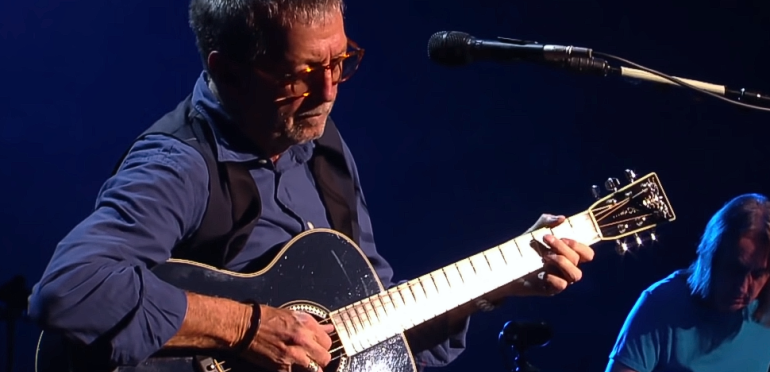Just yesterday a Jamaican minister said it was time for the country to become a republic. Even though Jamaica has been independent since 1962, it is still part of the Commonwealth, so King Charles is the head of state.
New impulse
His coronation was not a cause for celebration in Jamaica, the minister said, but rather a fresh impetus to separate from the monarchy. “Many Jamaicans have warm feelings for Queen Elizabeth,” said Secretary of State Marlene Malahoo Forte for Legal Affairs, “but they do not identify with King Charles.”
That sentiment is an irreversible process, says correspondent Anne Saenen. “Charles has to find a way to deal with it, but he can’t stop it.”
Apart from Jamaica, five other countries have indicated they want to remove the British king as head of state. They are all located in the Caribbean, where enthusiasm for the British royal family has waned greatly in recent years. More on that later, first some explanation of the Commonwealth, which the British call the Commonwealth.
In colonial times, Britain ruled most of the world. It is said that the sun never set over the British Empire in the 18th and 19th centuries. That’s actually still true. Now there is a Commonwealth of Nations, a Commonwealth of Nations which is still symbolically ruled by Charles.
56 countries
The Commonwealth now consists of 56 countries. Most are former British colonies which, after becoming independent, have continued to work closely with each other and with London.
Of these 56 countries, apart from the United Kingdom itself, another fourteen officially still have the British monarch as head of state. These countries are called the Commonwealth of Nations. The most famous are Canada, Australia and New Zealand.
But the question is: for how long? New Zealand’s new prime minister, Chris Hipkins, will be in London tomorrow for the coronation, but said a few days ago that as far as he was concerned, his country should be a republic, with a self-appointed head of state. Though he added that he was speaking in a personal capacity, and this would not become policy. Her predecessor Jacinda Ardern also supported the republic.
The same sound can be heard in Australia – longer here, by the way. In recent years, various governments have considered holding a referendum on this matter. The current Prime Minister of Albania has even appointed a special minister in his government to handle the transition to a republic.
‘move’
‘We continue’: we continue, independently. That was the message Crown Prince William received during a visit to Jamaica last September. Host Prime Minister Holmes, as his minister did yesterday, doesn’t mind it: Jamaica wants to do away with the British monarchy.
Especially among the countries and island nations of the Caribbean, there is a great need to break away from the British royal family. Apart from Jamaica, Belize, the Bahamas, Grenada, Antigua and Barbuda, as well as Saint Kitts and Nevis also wanted to get rid of Charles as king.
The distance to Buckingham Palace is literally and figuratively too far for many people. “This has certainly been going on for a long time,” said Anne Saenen. “Especially in the Caribbean, they don’t have much of a relationship with the British royal family anymore. The older generation, maybe, with Queen Elizabeth. But the younger ones definitely don’t anymore.”
Hence, the reaction to the impending coronation in Jamaica was lukewarm. “It doesn’t bother me because I don’t see what they are doing to us in Jamaica,” peanut seller Claudeth Brown told Reuters news agency. “We have our independence, what do we do with a head of state so far away,” said carpenter David Brown.
Slavery
It is precisely this colonial history that is playing an increasingly important role. At that time, the British began planting plantations in their Caribbean colony and brought hundreds of thousands of enslaved Africans there. This resulting prosperity has also benefited the royal family, and the new generation is much more critical of this.
Breaking with the British monarchy is important for Jamaica, civil rights activist Steven Golding told Reuters. “If you look at the atrocities we experienced during slavery, I think this is the last piece of the puzzle regarding our sovereignty as an independent nation.”
Protest
During his visit to several countries in the region in March last year, Crown Prince William and his wife Kate were regularly confronted with protests.
Anne Saenen: “Recently, Caribbean countries accelerated the process of separation from the royal family. This is driven by the need for further decolonization, and a desire for self-governance. This is further reinforced by the fact that Barbados is also successful, in 2021. Barbados is still the most British of all the countries in the region. Charles himself attended the secession ceremony.”
Scandal
Which also played a role, according to Saenen: “We know everything about King Charles’ private life. We know nothing about his mother, who was of impeccable behavior, and actually a mother to everyone. But all the scandals surrounding Charles’ divorce from Diana, the infidelity of his brother her son Andrew and recently the crisis surrounding Prince Harry and Meghan, over the racism that will play out within the royal house: it also means that many Caribbean citizens are done with it.”
Incidentally, the British royals were aware of their contaminated colonial past. During his visit to Jamaica last year, Prince William said slavery should never have happened. Charles himself also expressed himself in this way. But a formal apology, which many have asked for, has so far not been forthcoming. Watch footage of William’s visit to Jamaica here:
Charles couldn’t stop the fact that a number of countries wanted to get rid of the royal family. “But he showed that he wanted to modernize,” says Anne Saenen. “You could see at the coronation, when he presented himself to the world. Charles wants to be more inclusive, and would be welcomed by other faith leaders. It also had to be cheaper than it was with his mother at the time, because the country was in a financial crisis. Ordinary citizens are involved. He wants to show that he is more than a citizen.”
It was inevitable that a number of countries would remove it from the constitution under his empire. By the way, it’s not always easy. For this reason, the constitutions in these countries must be amended. And in Jamaica and Grenada, for example, a referendum must be held first, where two-thirds of the population must then vote in favor.

“Falls down a lot. General tv buff. Incurable zombie fan. Subtly charming problem solver. Amateur explorer.”







